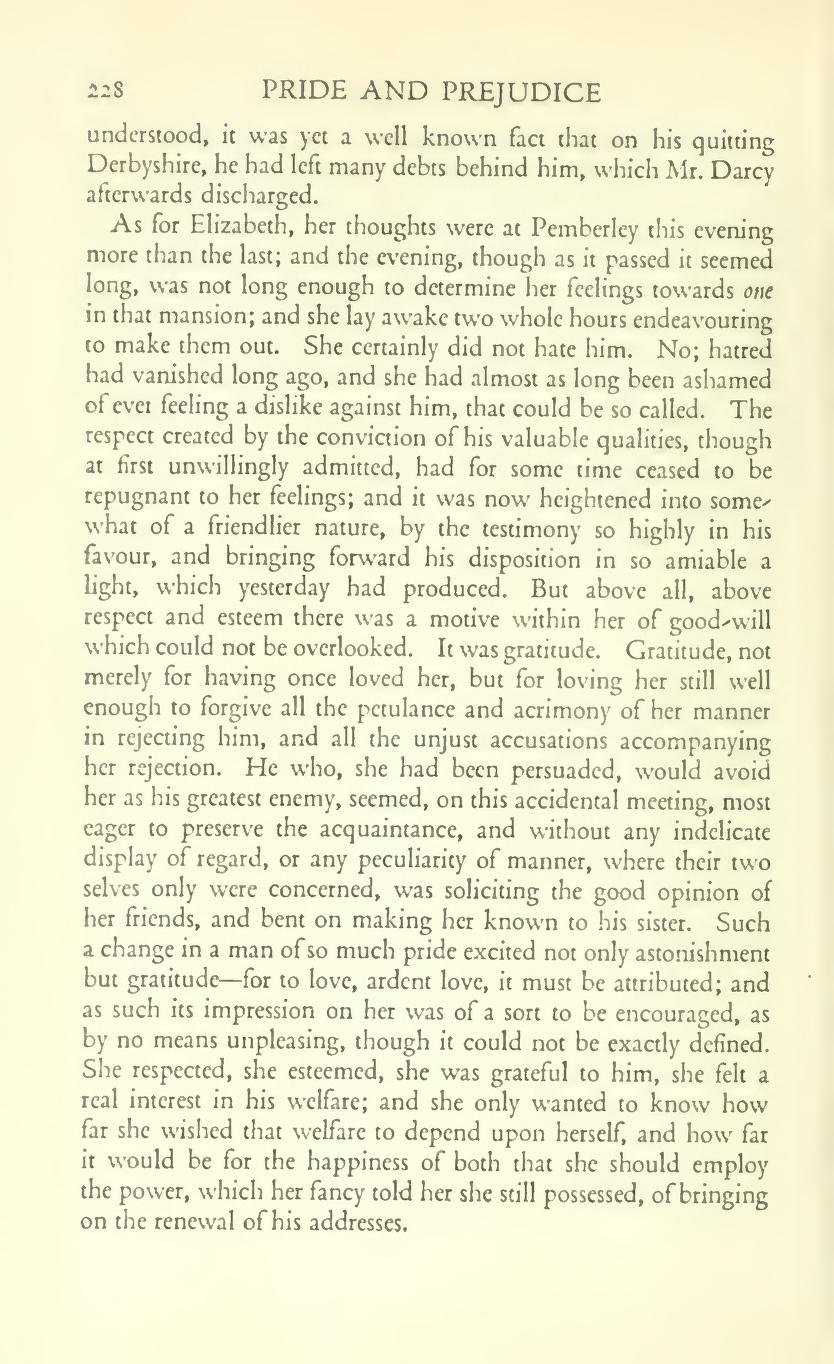 ............prev.....................next
............prev.....................next{{prxprp228.jpg}} || 228 PRIDE AND PREJUDICE ||
understood, it was yet a well known fact that on his quitting
Derbyshire, he had left many debts behind him, which Mr. Darcy
afterwards discharged.
As for Elizabeth, her thoughts were at Pemberley this evening
more than the last; and the evening, though as it passed it seemed
long, was not long enough to determine her feelings towards one
in that mansion; and she lay awake two whole hours endeavouring
to make them out. She certainly did not hate him. No; hatred
had vanished long ago, and she had almost as long been ashamed
of ever feeling a dislike against him, that could be so called. The
respect created by the conviction of his valuable qualities, though
at first unwillingly admitted, had for some time ceased to be
repugnant to her feelings; and it was now heightened into some'
what of a friendlier nature, by the testimony so highly in his
favour, and bringing forward his disposition in so amiable a
light, which yesterday had produced. But above all, above
respect and esteem there was a motive within her of goodwill
which could not be overlooked. It was gratitude. Gratitude, not
merely for having once loved her, but for loving her still well
enough to forgive all the petulance and acrimony of her manner
in rejecting him, and all the unjust accusations accompanying
her rejection. He who, she had been persuaded, would avoid
her as his greatest enemy, seemed, on this accidental meeting, most
eager to preserve the acquaintance, and without any indelicate
display of regard, or any peculiarity of manner, where their two
selves only were concerned, was soliciting the good opinion of
her friends, and bent on making her known to his sister. Such
a change in a man of so much pride excited not only astonishment
but gratitude -- for to love, ardent love, it must be attributed; and
as such its impression on her was of a sort to be encouraged, as
by no means unpleasing, though it could not be exactly defined.
She respected, she esteemed, she was grateful to him, she felt a
real interest in his welfare; and she only wanted to know how
far she wished that welfare to depend upon herself, and how far
it would be for the happiness of both that she should employ
the power, which her fancy told her she still possessed, of bringing
on the renewal of his addresses.
[[228]]